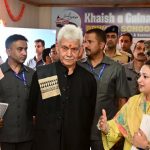In the Amshipora encounter which was alleged to be fake, the Armed Forces Tribunal has suspended the sentence awarded to convicted officer Captain Bhoopendra Singh and granted him bail.
The Amshipora encounter took place on July 18, 2020, in the Shopian area of Jammu and Kashmir in which three ‘terrorists’ were killed by a Rashtriya Rifles unit but later they were claimed to be labourers from Rajouri. The Army disciplinary proceedings had found the officer Captain Bhoopendera Singh guilty and he was awarded life imprisonment.
The officer had approached the Principal Bench of the Armed Forces Tribunal in New Delhi through his lawyer S S Pandey against the conviction claiming “illegality in proceedings” and other discrepancies in the disciplinary proceedings against him.
“We allow the application for suspension of sentence for life imprisonment and direct that the applicant shall be released on bail,” the Principal Bench headed by Justice Rajendra Menon including administrative member Lt Gen CP Mohanty said.
The court said that we have only stayed the sentence of conviction to the extent of undergoing the jail sentence, all other punishments like cashiering etc. shall continue to remain in operation during the pendency of this appeal.
However, the court rejected the plea for stay of conviction and allowed the Army to promulgate the sentence awarded to the officer in the Summary General Court Martial.
When asked by ANI to comment on the case, Captain Singh’s lawyer SS Pandey said, “I am very grateful to the Tribunal to impart justice to this young officer who was the victim and not the perpetrator as was being made out.”
He said the Summary General Court Martial had not followed the basic principles of the criminal justice system and rules of evidence by coming to such perverse findings and our stand vindicated.
Examining the evidence relied upon by the Army Summary General Court Martial to award punishment to the Captain, the tribunal said, “The evidence relied upon by the prosecution and accepted by the SGCM in the present case is not convincing enough to hold the applicant guilty of the charges levelled against him. Prima facie, based on the material available on record we are convinced that the likelihood of the applicant being acquitted after hearing of this appeal cannot be ruled out.”
The court stated that the applicant has already been in custody for a period of about three years and therefore, it is a fit case where, prima facie, evidence available on record suggests that bail can be granted to the applicant by suspending the sentence.
Assessing the evidence including the confessional statement given by the officer to a Board of Officers, the court said, “Trial is violative of the requirement of Section 27 of the Indian Evidence Act. It is a well-settled principle of law that no person can be implicated on the basis of a disclosure statement made in the circumstances explained in the Evidence Act.”
The Tribunal pointed out that the other evidence in the case is the statement made by co-accused Bilal Ahmed Lone whose statement has been relied upon to convict the man driver.
Lone later turned approver and has already been granted pardon by the Chief Judicial Magistrate’s court in Shopian, Jammu and Kashmir.
“Relying upon the statement of a co-accused, in our considered view and, further is in breach of the provisions of Section 27 of the Indian Evidence Act wherein it has been stipulated that based on the statement of a co-accused, a conviction cannot be ordered,” the court stated.
Further ahead, the court on its order also observed that the the exorbitant expenditure of arms and ammunition, as indicated in the satiation report, discredits the case of the prosecution as brought out in the trial to a large extent.
“Further if the SITREP and the expenditure of arms and ammunition are taken note of, the statement of the commanding officer to the effect that he was unaware of the event seems to be totally untrustworthy and cannot be given due credence at this stage,” the court opined.
The Tribunal observed that “In our considered view, the totality of the evidence available on record clearly shows that there cannot be any motive for the officer to eliminate three civilians and conduct such an operation without the knowledge of the commanding officer. This is highly doubtful and cannot be believed on its face value.”
That apart, it is surprising to note about the absence of anyone from combat action team I along with the accused while the alleged act/operation was conducted, the entire operation becomes suspect.
“In this regard, if we consider, the SITREP, particularly para 5, we find that one Junior Commissioned By driver was there with the accused when the operation took place, the court stated.
Reference to the cross-examination of the witnesses by the accused as per Army Rule 23(2) also indicates certain doubt with regard to the happening of the incident as narrated by the prosecution.
“Even the recovery of weapons and other material from the deceased becomes doubtful on due consideration of the statement of the CO and other personnel Their statements throw some light with regard to the fact that prior information of the operation and permission from the CO was available and there was also sharing of location including deletion of chats from WhatsApp group,” the order said.
The court stated that further a perusal of daily SITREP and the statement of witnesses indicate about the retaliatory firing on the party that had visited the place of the incident for the operation and the presence of some persons inside the target house indulging in counter-firing from the target house and recovery of large scale arms and ammunition indicated in the SITREP throws light on the retaliatory firing emphasis on which was laid on behalf of the applicant at the time of hearing. (ANI)








